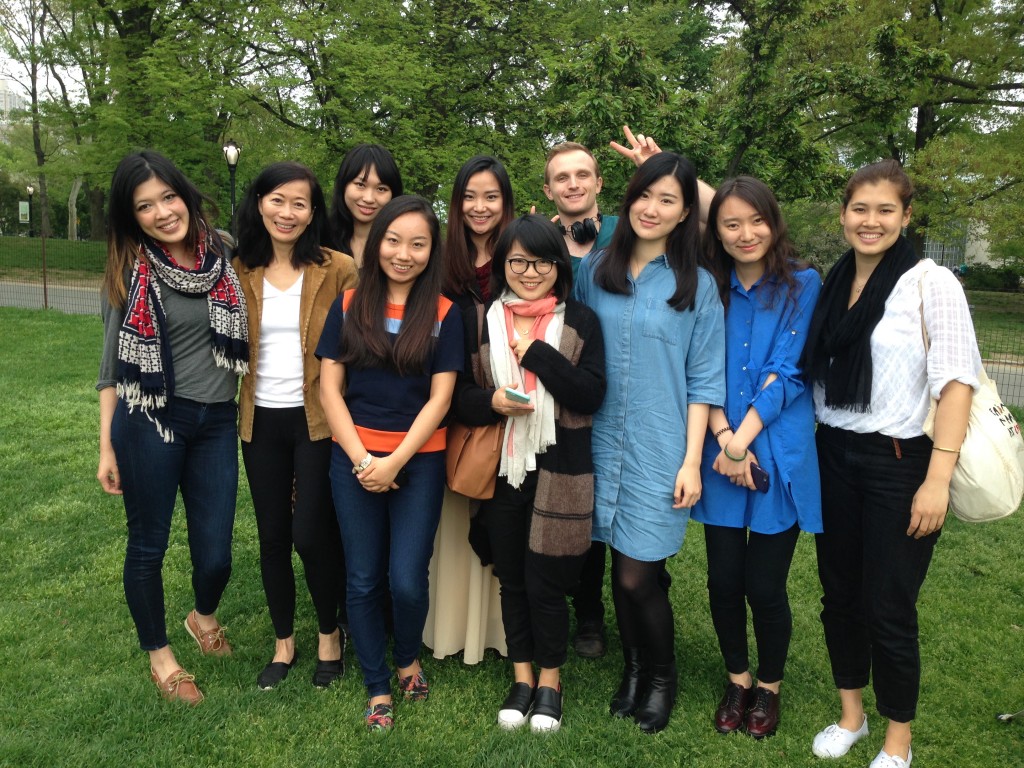On this gorgeous afternoon last Saturday, I sat around in a circle on the Great Lawn of Central Park, ruminating on the nature of decisions with a group of China Personified network friends and members.
Except for me, everyone belongs to the Millennial generation.
Most are new to New York, or fresh in their first few years of deciding how best to learn, live, grow and develop personally and professionally.
Their boundless energy, confidence, appetite for growth is infectious.
Their optimistic outlook on their future however, also belies a layer of lingering anxiety, particularly acute when they feel they may be missing “other opportunities out there” if they stay the current course.
There is a restless nervousness that seems to drag them down even as they have abundant reasons to be upbeat about what they have or where they are.
“How do I know if what I’m doing now is the best?”
“What am I missing if I don’t make a move?”
“I enjoy what I’m doing, and I’m learning a lot, but I also feel a pull to go back to Asia.”
These expressions of self -doubts, and constant curiosity about what’s next are healthy signs of a natural and normal process of growing up. I certainly harbor plenty of those doubts even as I think I have grown up. None of us is immune to feeling confused when surrounded by choices and noises inside and outside of our heads.
But I think at a deeper level, what really troubles us may be this idea that we cannot do it all – that we have to choose, to decide, and to be responsible for the consequences of our actions. That perhaps is the scariest prospect – none of us wants to feel trapped or stuck with a bad decision.
Bad Decision?
What makes a decision bad?
Our group was quick to point out that one way of knowing is whether our loved ones will be negatively affected if we choose to do this or move there. This is especially true for those of us who are married. But if you are unattached, or are not responsible for supporting your family, you may think every opportunity that comes your way is an inviting moment to grab, to embrace, to engage in order to try and experience something new.
What seems new and different often gets our attention. It is seductive, flattering, exciting. Obviously, not every opportunity is a good fit. Knowing what makes a good fit is often unclear. It takes a bit of digging deeper within oneself.
As I’ve discovered, one effective way to approach my choices is to detach myself and pose this question, “who do you want to be? in a “second person” posture and tone. I’d tried that during my first career crossroads.
Who Do You Want To Be?
After four years of working at an entry level position as a news production assistant/associate producer at a New York TV station -WWOR-TV, I was thrilled to be offered a job with the Manhattan District Attorney office as a bilingual paralegal in their organized crime unit, tackling tough cases in Chinatown. Meanwhile, I also received another offer to be an on-air reporter for Hong Kong TVB News.
Both offers came at a time when my foreign worker status (H-1 visa) was due to expire. Knowing that day would come, I had been preparing to expand my professional realm of interests and knowledge (i.e. Law) by enrolling in an evening program at NYU – Paralegal Diplomat studies. I had also reached out to Hong Kong TVB News, where I had spent two summers working as an intern with highly rewarding experiences.
Some of the questions I asked myself in the “second person” included –
“Mable, who do you want to be? 2 years from now, 4 years from now… ”
“Are you excited about changing your identify from a journalist in television – chasing different stories every day – to cracking cold cases or violent gangs in Chinatown? “
“How will your choice – as a TV reporter or prosecutor (that’s the career training/trajectory offered to me if I accepted the offer to start as a paralegal) – get you closer to the type of person you want to be?”
“What type of person do you want to be?
“Can you see yourself speaking and acting like a prosecutor? What kind of tone and manner will you have to adopt? Are you comfortable with that?
These were some of my answers.
I wanted to be a caring, listening person who dares to travel the distance to get into people’s lives to tell their stories of struggle or suffering.
I wanted to be a sharing person who dares to address injustice in the world, or to shine a light in the dark.
I wanted to be part of what’s new and next, in the spotlight or in front of the camera to let the whole world know what I had discovered.
Yes – those were all different aspects of my ideal self as a twenty-something at a crossroads.
No surprise – in the end, I chose to return to Hong Kong to be an on-air correspondent. But that’s not the end, that was just a step.
Since then, I have also returned to America, gone on to graduate school, become an American network news producer and now a media entrepreneur.
Many unpredictable uncontrollable twists and turns in my life have also changed my vision of who I wanted to be. But at every turning point, I would instinctively know if I were becoming somebody I wanted to be when I simply asked myself that question in the “second person” – “Who Do You Want To Be?”



